13 Facts About the Number 13 That Will Seriously Freak You Out
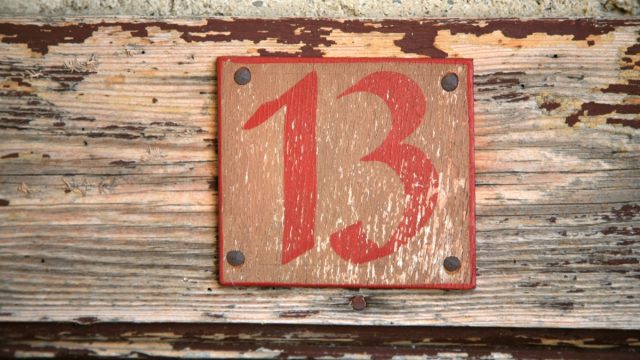
The number 13 is commonly considered the unluckiest number around. Those who are superstitious will avoid anything having to do with these digits—from the 13th step on a set of stairs to the 13th floor of a building. And these folks aren’t being totally dramatic, either. Throughout history, the number 13 has been associated with bad luck and misfortune, so it’s only natural that people are dubious. To help you learn more about this spooky number, we’ve rounded up some facts about the number 13 that will seriously freak you out. (And yes, there are 13 of them. We just couldn’t help ourselves.)
1
Plenty of frightening figures in history have 13 letters in their names.
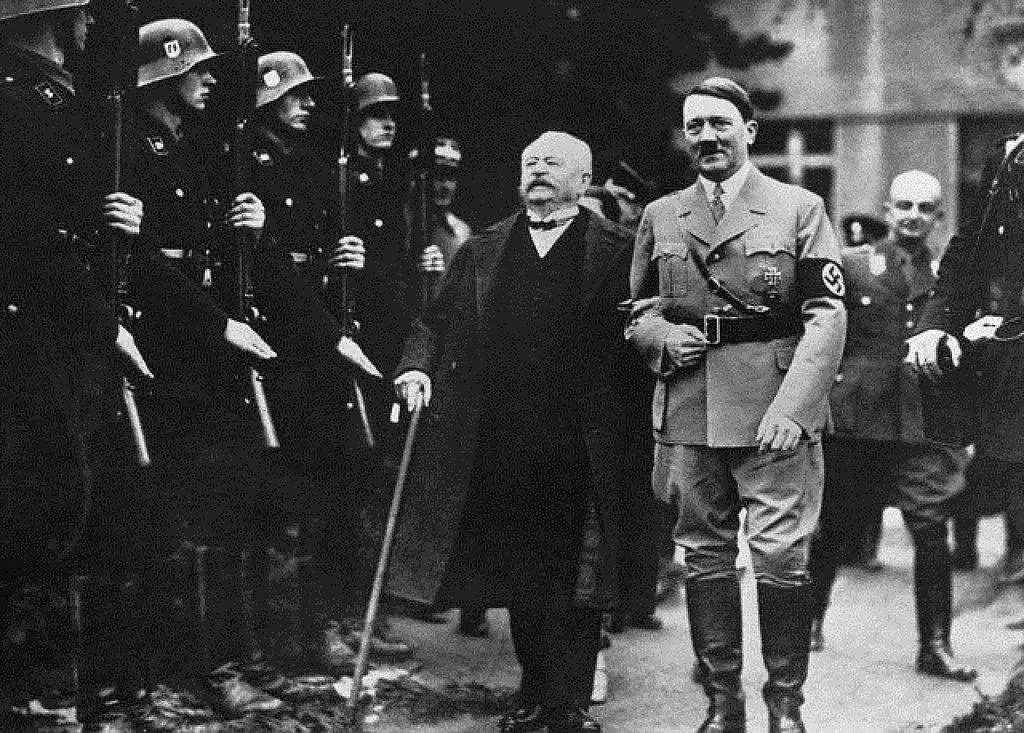
It just so happens that quite a few serial killers have 13-letter names, including Charles Manson, Jeffrey Dahmer, Theodore Bundy, and Albert DeSalvo. Even Jack the Ripper has 13 letters, as does Adolfus Hitler, which was Adolf Hitler’s baptismal name.
2
The name for the phobia of the number 13 is triskaidekaphobia.

Some people aren’t just leery of the number 13—they’re downright terrified of it. Those who fear this number suffer from what’s known as triskaidekaphobia.
According to Time, millions of individuals are at the mercy of this extreme aversion, including famous horror writer Stephen King. Back in 1984, King admitted to stepping over the 13th stair, feeling uncomfortable watching channel 13, and refusing to pause on page 13 (and even on pages with digits that add up to 13, like page 94) while reading books. “It’s neurotic, sure. But it’s also … safer,” he wrote in a 1984 article for The New York Times.
3
President Franklin D. Roosevelt didn’t like dining in groups of 13 people.
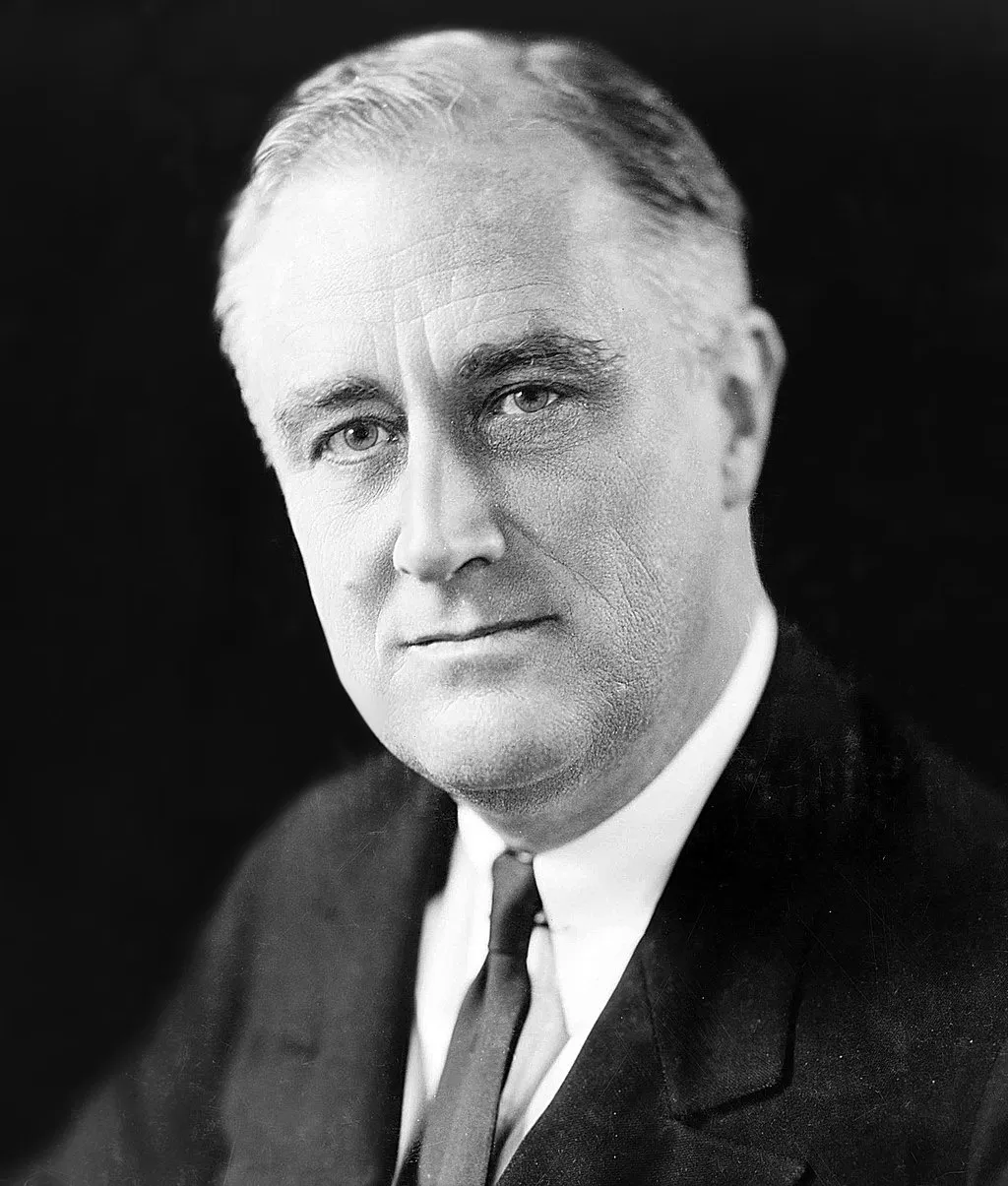
King isn’t the only famous name associated with triskaidekaphobia. President Franklin D. Roosevelt also suffered from this fear, which is why he was extremely cautious with the number, according to his biographer, journalist John Gunther. “[Like] most people with good luck, FDR was moderately—not excessively—superstitious. He hated Friday the 13th, he would never start an important trip on a Friday if he could help it, and he disliked sitting down with 13 at dinner,” Gunther once wrote.
4
Statistically, you’re not more likely to experience bad luck on Friday the 13th.
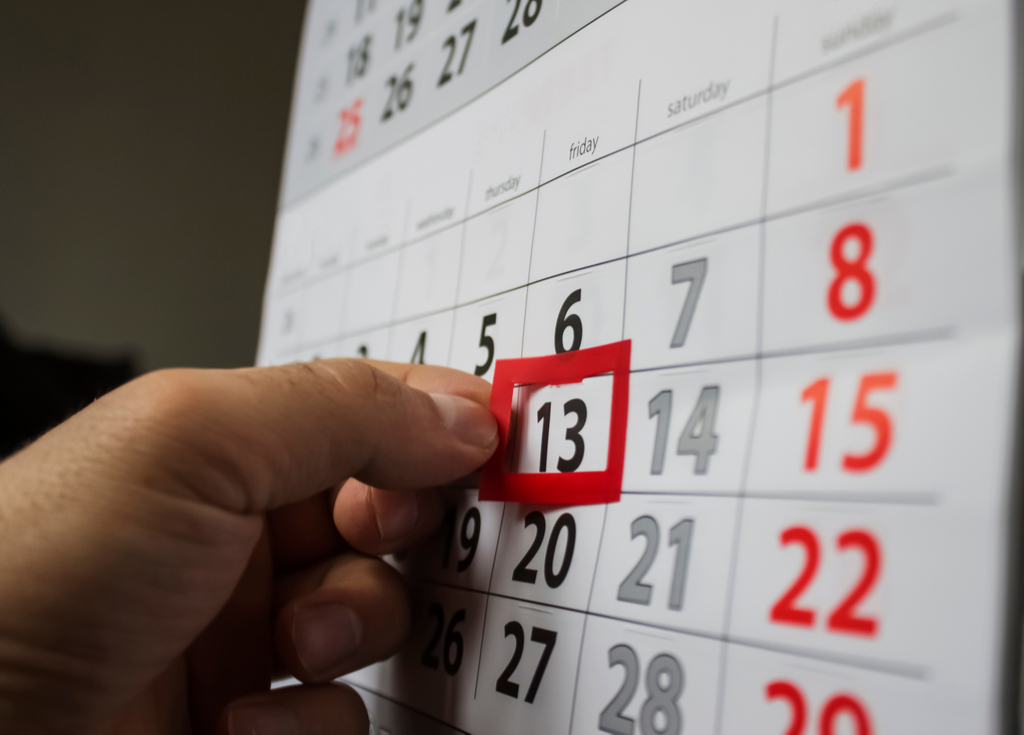
If you, like FDR, are the kind of person who fears they’ll suffer an unusually unfortunate fate on Friday the 13th, you can breathe a little easier. “No data exists, and will never exist, to confirm that the number 13 is an unlucky number,” Igor Radun of the Human Factors and Safety Behavior Group at the University of Helsinki told Live Science. “There is no reason to believe that any number would be lucky or unlucky.”
In fact, in 2004, Radun co-authored a study that found that neither men nor women have more accidents on Friday the 13th compared to other Fridays.
5
But plenty of unlucky stuff has happened on Friday the 13th.

Sure, there’s no proof that bad things are more likely to happen on Friday the 13th—but many disasters certainly have. For example, on a Friday the 13th in 1972, a plane crashed in the Andes, and the survivors reluctantly resorted to cannibalism. On the same day, a Russian plane crashed near Moscow, killing 174 people. On a Friday the 13th in 2006, nearly 400,000 people lost power in Buffalo, New York, when a blizzard buried the city in two feet of snow—in October! Suffice it to say, sometimes bad things do happen on the 13th.
6
Many buildings call their 13th floors by other designations.
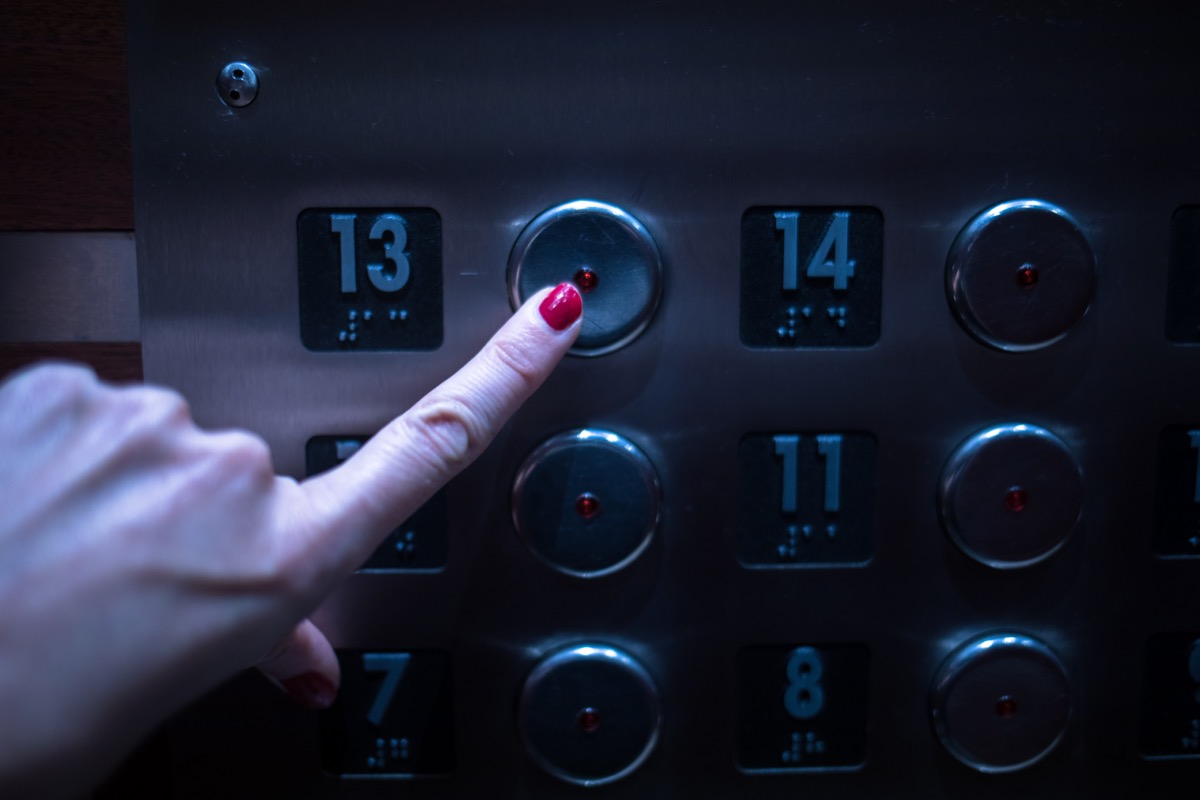
Plenty of buildings have a 13th floor—but often, it’ll go by a different name. Frankly, selling condos or getting hotel guests to stay on the 13th floor has proven difficult. In 2015, the New York City-based housing data and listings firm CityRealty released a list of condos in Manhattan that have a 13th floor. According to The Atlantic, “the company found that, out of 629 buildings with 13 or more floors, only 55 labeled the 13th floor as the 13th floor. That means only 9 percent of the condos that actually have 13th floors label them as such. The remaining 91 percent of buildings with 13th floors relabeled them.”
So, if you ever find yourself on a floor that’s labeled 12B or 14A or even M (the 13th letter in the alphabet), we’re sorry to tell you, but you’re probably on the 13th floor.
7
But in Vancouver, buildings are no longer allowed to skip the 13th floor.

While some buildings avoid deeming their 13th floor as such, owners in Vancouver aren’t allowed to do so. The Canadian city used to let builders jump to number 14 to avoid the unlucky number. However, things started to get out of hand when there were also requests to skip any floor that had the number 4 in it (i.e. 4, 14, 24, 34, etc.) because that’s also considered unlucky in some cultures. “We’re back to basic math at the city,” the city’s Chief Building Official Pat Ryan told the Vancouver Sun in 2015. “It was very hard to justify why we were doing this if something were to go wrong.”
8
A London hospital got rid of beds with the number 13.

Some condos, hotels, and office buildings may refuse to acknowledge their 13th floors to calm anyone who fears the unlucky number—and that’s the same motivation behind a London hospital’s decision to get rid of some of its beds. Because the beds are numbered, superstitious patients want to avoid bed number 13, because they “consider it an unlucky omen” and it causes them “unnecessary worry,” according to The Daily Mail. To calm these fears, St. Thomas’ Hospital in south London now has beds that go from 12 to 14.
9
Thirteen family members set the record for the highest combined age of living siblings.

The Donnellys of Armagh, Ireland, consist of 13 living siblings born between 1924 and 1945, which helped them earn a Guinness World Record for the highest combined age of any living siblings on earth. In 2017, the 13 brothers and sisters—John (born in 1924), Mary (born in 1925), Eileen (born in 1927), Peter (born in 1929), Margaret (born in 1930), Rose (born in 1932), William (born in 1934), Terence (born in 1935), James (born in 1937), Brian (born in 1940), Kathleen (born in 1941), Hugh (born in 1943), and Gerald (born in 1945)—reached a combined age of 1,075 years and 68 days. Sadly, their brother Austin passed away before they could qualify as a group of 14 siblings.
10
America almost had a 13-month calendar.

The internationally accepted Gregorian calendar may be split into 12 months, but things were almost very different. If the world followed the International Fixed calendar, we’d have 13 months. In this alternative system, each month includes the exact same number of days, which is 28 instead of 30 or 31 like we have now. The calendar was created by Moses Cotsworth, a North Eastern Railway advisor who was annoyed by the way months with different numbers of days affected his paychecks. (Aren’t we all, Cotsworth. Aren’t we all.)
11
Taylor Swift is a big fan of the number 13.

If you’re not a fan of the number 13, then you might also be wary of Taylor Swift. Born on December 13, 1989, the pop star adores the number 13 and regularly slips the number into her music whenever possible. “I was born on the 13th. I turned 13 on Friday the 13th. My first album went gold in 13 weeks. My first No. 1 song had a 13-second intro. Every time I’ve won an award, I’ve been seated in either the 13th seat, the 13th row, the 13th section, or row M, which is the 13th letter,” Swift explained to MTV News in 2009. “Basically whenever a 13 comes up in my life, it’s a good thing.”
12
The Thirteen Club was a secret society that loved the unlucky number.
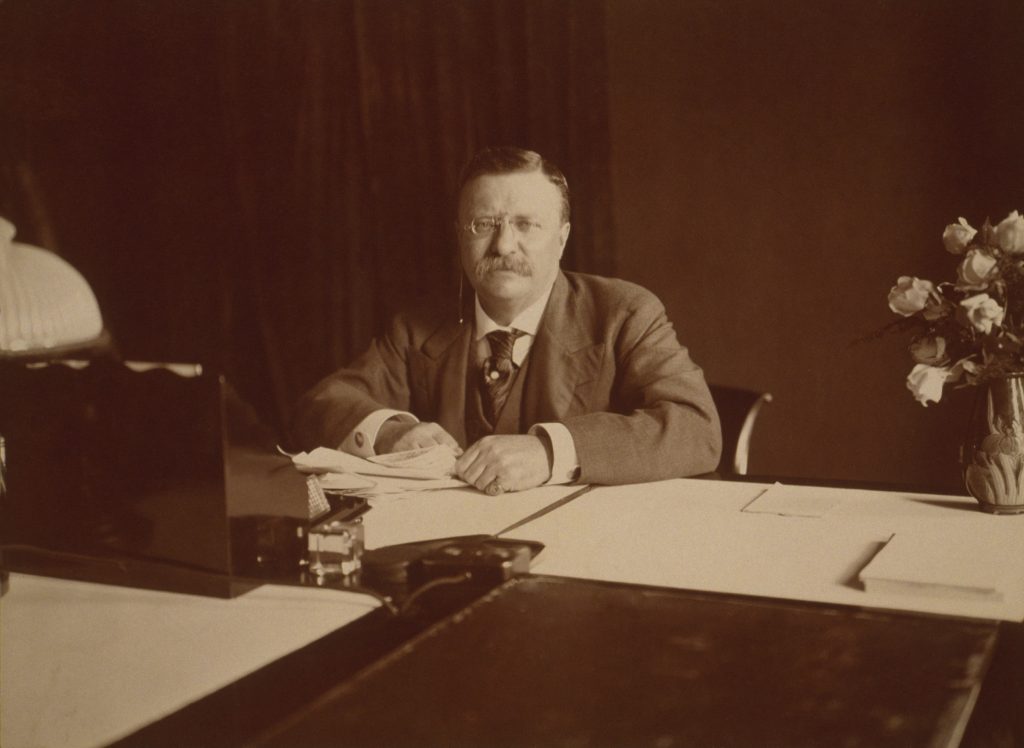
If Swift had been around between the late 1800s and early 1900s, she might have been invited to join the Thirteen Club, courtesy of an invitation from Captain William Fowler, “a gregarious man about town,” who was a member of “13 secret and social organizations,” according to the New York Historical Society. He was also the founder of the Thirteen Club, an elite group that embraced the unlucky number during their meetings and included members like Chester A. Arthur, Grover Cleveland, Benjamin Harrison, and Theodore Roosevelt (pictured here).
13
There’s no simple explanation for why the number 13 is considered unlucky.
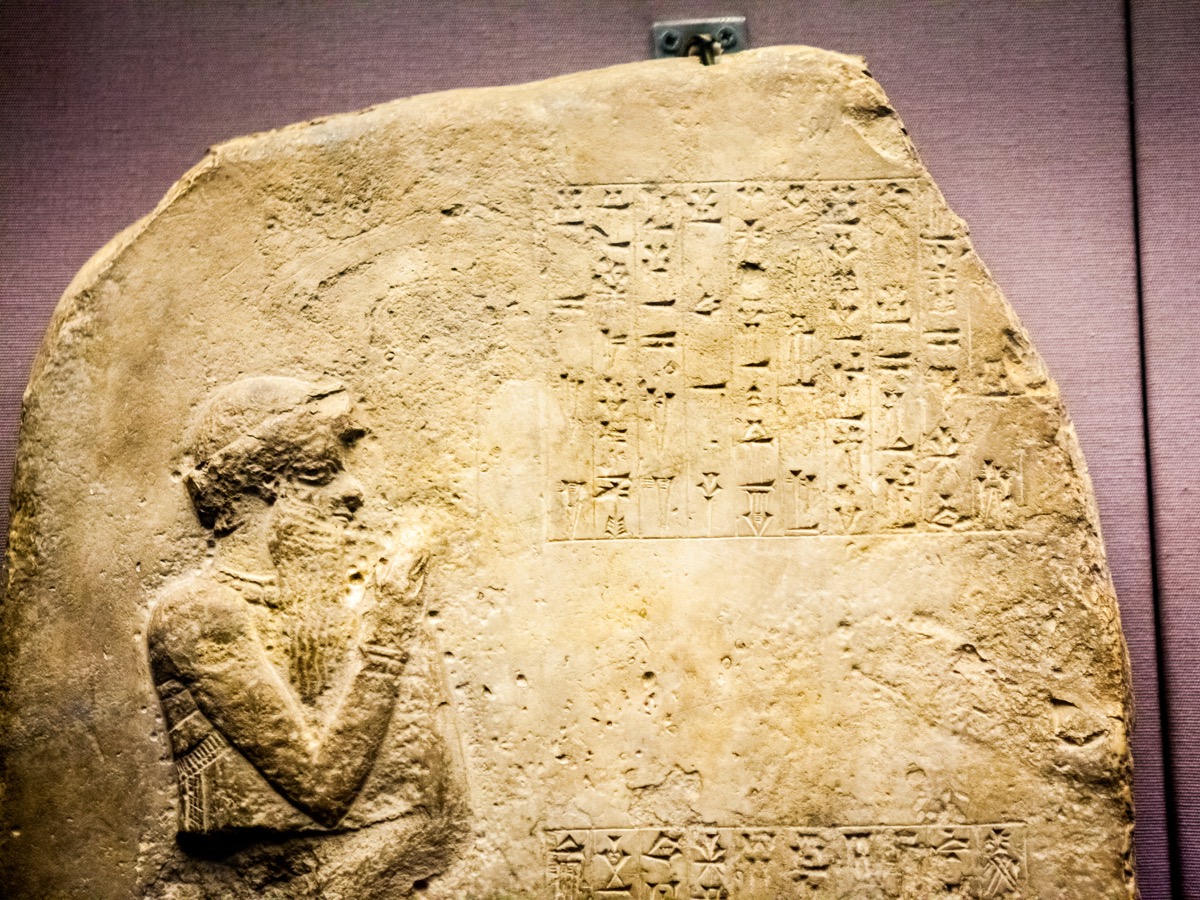
The number 13’s bad reputation doesn’t stem from one simple story, but the unlucky number is rooted in multiple legends. One tale “involved one of the world’s oldest legal documents, the Code of Hammurabi, which reportedly omitted a 13th law from its list of legal rules,” according to the History Channel. “In reality, the omission was no more than a clerical error made by one of the document’s earliest translators.”
There’s also the fact that many systems simply end at 12. For example, the History Channel reports that “ancient Sumerians developed a numeral system based on the use of 12 that is still used for measuring time today; most calendars have 12 months; a single day is comprised of two 12-hour half days, etc. Following so closely on the heels of a ‘perfect’ number, some argue, the poor 13 was sure to be found lacking and unusual.” Poor 13.